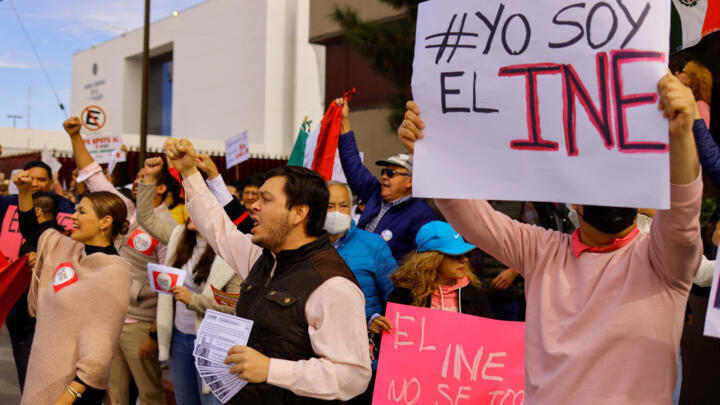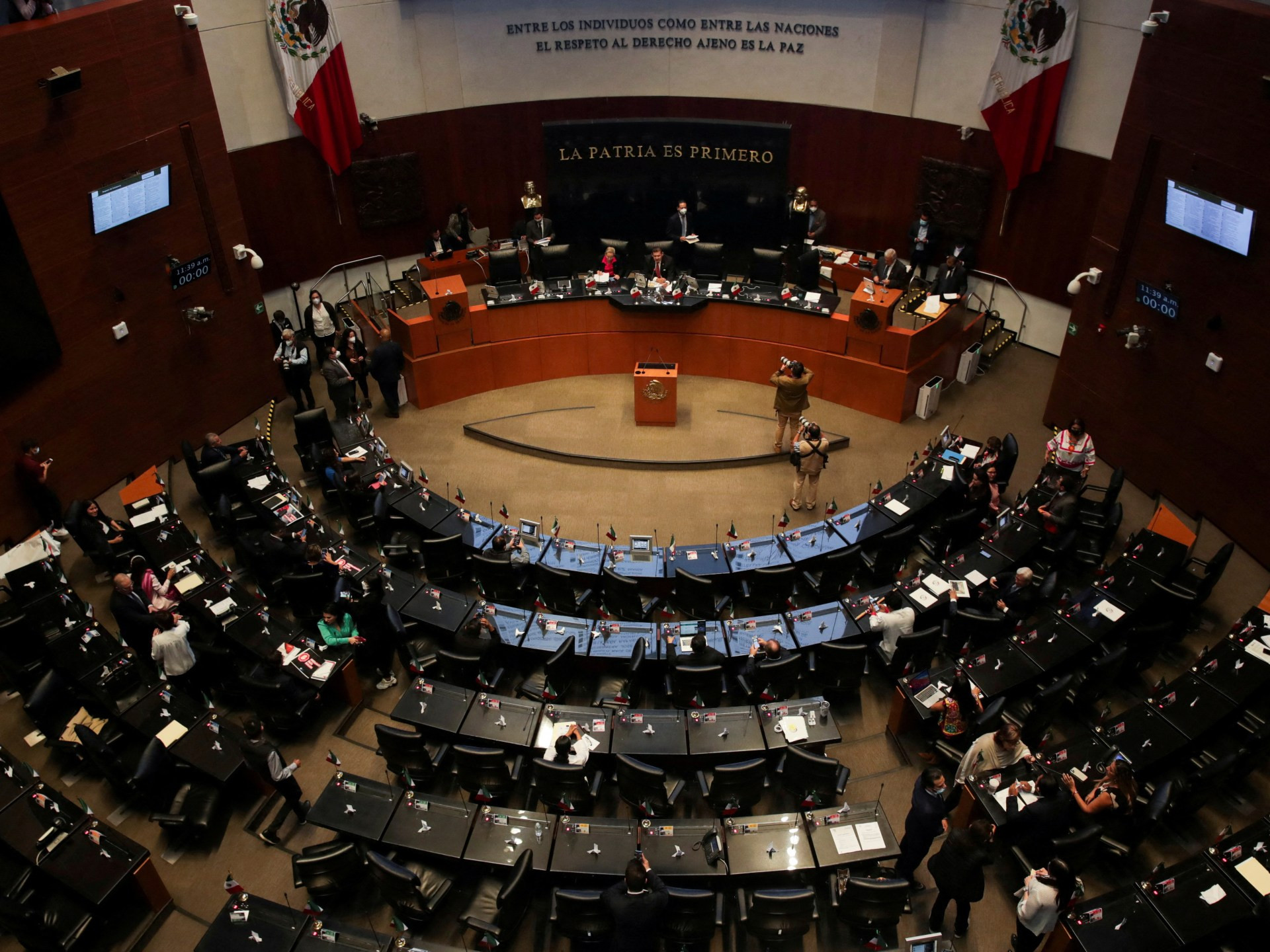Mexico's Senate has approved a controversial judicial reform under which judges will be elected by popular vote. Its supporters say the changes will make judges more accountable to the Mexican people but critics argue it undermines the country's system of checks and balances and will strengthen the power of the governing Morena party. The bill has triggered strikes and protests, with demonstrators earlier breaking into the building where the vote was due to take place.
The Senate vote was the last major hurdle facing the legislation, which has the backing of President Andrés Manuel López Obrador. During a dramatic late-night session, the debate had to be paused when protesters chanting "the judiciary will not fall" stormed the chamber where senators were gathered. After lawmakers moved to a different building, the vote went ahead in the early hours of Wednesday local time.
Senators were called one by one by their names and asked to cast their vote. Senator Miguel Ángel Yunes broke ranks with his opposition National Action Party and voted in favour of the reform, meaning it gained the two-thirds majority needed for constitutional change. Legislators then continued to debate a number of points in detail before giving the reform its final approval.
Its passage is a victory for President López Obrador, whose term is coming to an end on 30 September. The outgoing president had thrown his weight behind the reform after repeatedly clashing with Mexico's Supreme Court, which during his six-year term has blocked some of his proposed changes in the energy and security sector. The president has accused the judiciary of being "at the service of the powerful, at the service of white-collar crime".
The Controversial Reform: A Deep Dive
Under the new system, judges, magistrates and even Supreme Court justices will have to stand for popular election. This measure, arguably the most contentious part of the reform, has ignited fierce debates and sparked concerns among legal experts, international observers, and even the country's Supreme Court Chief Justice. Critics argue that this move threatens the judiciary's independence, potentially making judges more susceptible to pressure from powerful groups, including criminal organizations, in order to secure their re-election.
Opposition to the Reform: Voices of Dissent
Among those who have criticised the changes is Supreme Court Chief Justice Norma Piña. She warned the proposed model would "generate tension between judges' duty to be independent and impartial and their need to make rulings which are popular in order to attract votes". "The demolition of the judiciary is not the way forward," she said in a video posted to X, formerly known as Twitter, on Sunday. The reform has proven highly divisive. Law students and employees of the judicial sector held rallies in major Mexican cities to oppose it and many went on strike in protest.
A Divided Nation: Protests and Tensions
The protest against the judicial reform reached a boiling point during the Senate debate. Hundreds of protesters, chanting slogans like "The judiciary will not fall", stormed the Senate chamber in an attempt to disrupt the vote. Lawmakers were forced to relocate to a different building, where they resumed their debate as demonstrations continued outside. This dramatic scene underscored the deep divide that the reform has created within Mexican society. However, the opposition's efforts to block the reform proved unsuccessful, as the governing party secured the necessary votes to pass it.
International Concerns and Economic Impacts
The judicial changes have also raised concerns beyond Mexico's borders. Ken Salazar, the US Ambassador to Mexico, said the popular direct election of judges constituted "a major risk to the functioning of Mexico's democracy". Investors also appear to have been spooked by the plans. Mexico's currency, the peso, fell in the days leading up to the vote as it became clear that Morena had secured the necessary support for it to pass. This suggests that the reform is not just a domestic issue, but one that has international implications for Mexico's political and economic stability.
What's Next for Mexico's Judiciary?
The reform will now be voted on at state-level congresses, where the ruling coalition has the votes to see it through. It will take effect once published in Mexico’s official gazette. The implementation of this controversial reform will be a key test for Mexico's democracy. It will be watched closely by international observers to see whether it strengthens the judiciary's accountability to the people or weakens its independence and ultimately undermines Mexico's democratic institutions. It remains to be seen whether the reform will achieve its intended goal of combatting corruption or will further erode the trust in Mexico's judicial system.
The Future of Mexico's Justice System: A New Era or a Step Backwards?
The approval of this judicial reform marks a significant turning point in the history of Mexico's justice system. It remains to be seen whether this reform will pave the way for a more accountable and responsive judiciary or whether it will ultimately lead to a more politicized and less independent justice system. Only time will tell whether this change will be a step forward for Mexico's democracy or a setback for the rule of law.


















